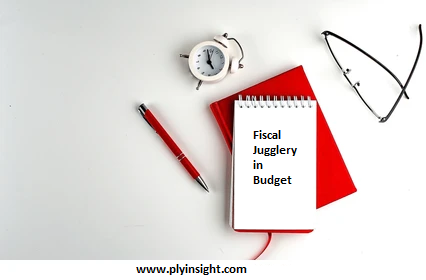
Fiscal Jugglery in Budget
- December 9, 2024
- 0
Government in the past have often shown a tendency to indulge in fiscal jugglery to hide the actual extent of their fiscal deficit. In his only Budget in 1987, Rajiv Gandhi quietly transferred the surplus money available in the Oil Pool Account to meet the government’s expenditure. This was a clever but an imprudent fiscal ploy to show a lower deficit.
Many years later, the United Progressive Alliance’s finance ministers, Palaniappan Chidambaram and his successor, Pranab Mukherjee, would issue oil bonds worth 1.34 trillion to oil companies from 2005 to 2010, instead of directly subsidising them for the losses they suffered as they were not allowed to raise retail prices. Fertiliser bonds too were issued to fertiliser companies for the same reasons. No budgetary disclosure of issuing these bonds was made till 2008-09.
Fortunately, this fiscally imprudent practice was stopped from 2010-11. But the fiscal impact of these bonds by way of interest payment continued to trouble succeeding governments including the current one.
Even the Narendra Modi government indulged in the questionable practice of issuing bonds to recapitalise public sector banks. But, in this case, there was at least a disclosure, and the impact of the interest outgo and the principle repayment over the next years was made public.
Nevertheless, such shifting of the burden of current expenditure onto future finance ministers and governments is a fiscally irresponsible act and even more harmful when done without disclosure.
For instance, NHAI, set up under the National Highways Authority of India Act, borrows from the market and repays the loans from its toll collections and other receipts. Similarly, IRFC mobilise resources as part of its financing lease arrangements with the Indian Railways to help meet its roiling stock requirements. There are obvious financial risks for the central exchequer. If NHAI or IRFC fails to collect enough toll revenue to repay its debts, the Union government will have to bail it out and the financial hit will have to be borne by the exchequer.
But there is no doubt that including this statement in the Budget document raises the awareness of everyone and conveys a message of caution to those who may have to manage public finance at the Centre in the future.
👇 Please Note 👇
Thank you for reading our article!
If you don’t received industries updates, News & our daily articles
please Whatsapp your Wapp No. or V Card on 8278298592, your number will be added in our broadcasting list.



































































